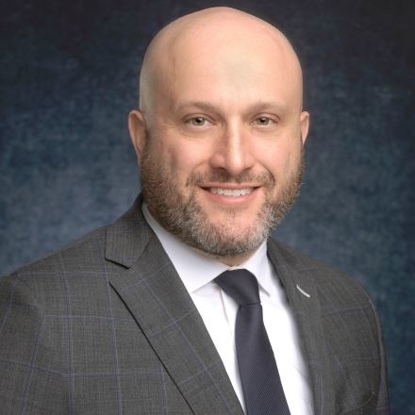
SSDI vs. SSI
Understanding the Difference between SSDI and SSI
Social Security Disability Insurance (SSDI) benefits are issued if you have been employed continuously for a specified amount of time, and have become disabled and can no longer work. Supplemental Security Income (SSI) gives financial assistance to those who suffer from disabilities, so they can pay their bills and afford life’s basic needs.
The process of applying for SSDI and SSI benefits is complex, and many initial applicants are initially denied.
The Virginia lawyers at Kalfus & Nachman PC are devoted to your claim and will help you through the appeals process so you are awarded the money to which you are entitled.
Call (855) 880-8163 today for a free case review.
SSDI vs. SSI
Social Security Disability Insurance benefits are issued on the basis of your work history. In order to be eligible to collect these benefits, you must have a qualifying disability. This includes a physical or mental impairment that is expected to result in death, or has lasted or is expected to last 12 continuous months or more. These benefits are paid by Social Security taxes.
Supplemental Security Income is a federal assistance program that issues funding to those who are disabled or are age 65 and older with limited income. To qualify for SSI benefits, you must be identified as “underserved” based on your income, owned real estate and money in bonds, bank accounts, etc.
SSI benefits consider an applicant’s:
- Real estate
- Monthly income
- Money in stocks, bonds and bank accounts
SSI benefits are awarded to individuals with low income, those over age 65 with limited assets, and those with a qualifying disability. To qualify, you must also be a legal citizen of the United States.
If Your Claim Is Denied
If your application is denied, you have 65 days to appeal starting from the date stamped on your denial letter. If you miss this deadline, you will have to start over and wait months for the decision (which is usually the same denial).
A majority of disability claims are initially denied, and then approved during the appeals process.
Reasons for denial vary for each applicant, but can include:
- Incomplete medical information
- Failure to list all limitations caused by your disabling medical condition
- An illness that is difficult for doctors to diagnose
If your claim was denied, the Virginia attorneys at Kalfus & Nachman PC can review your case and medical records, and help you put together a claim that has a greater chance of approval.
If you live in the Norfolk, Hampton, Newport News, Portsmouth, Virginia Beach or Roanoke, Virginia areas, please contact Kalfus & Nachman PC online or by phone at (855) 880-8163 today to schedule your no-cost consultation.

How Is Kalfus & Nachman Different?
-
You Will Pay No Fees Unless We Win Your Case
-
We Have Recovered Millions of Dollars for Our Clients
-
Our Attorneys Are Well-Equipped to Fight Insurance Companies
-
We Have Successfully Handled Thousands of Cases Since 1979
-
We are a Full-Service Firm with Multiple Locations
-
Se Habla Español

Awards & Accolades

We Mean Business
Read Our Recent Case results
-
$10.9 Million Traumatic Brain Injury
-
$10.5 Million Truck Accident
-
$7 Million Auto Accident
-
$5.147 Million Truck Accident
-
$2.15 Million Premises Liability

Meet Our Team
Tell Them We Mean Business
-
 Paul R. Hernandez Attorney
Paul R. Hernandez Attorney -
 A.J. Kalfus of Counsel
A.J. Kalfus of Counsel -
 Stuart L. Nachman of Counsel
Stuart L. Nachman of Counsel -
 Richard F. Aufenger, III of Counsel
Richard F. Aufenger, III of Counsel -
 Jesse M. Suit III of Counsel
Jesse M. Suit III of Counsel -
 Thomas A. Fitzgerald, II Attorney
Thomas A. Fitzgerald, II Attorney -
 Seth D. Scott Attorney
Seth D. Scott Attorney -
 Christopher I. Jacobs Attorney
Christopher I. Jacobs Attorney -
 Michael J. Levens Attorney
Michael J. Levens Attorney -
 Colin P. O'Dawe Attorney
Colin P. O'Dawe Attorney -
 Neal C. Schulwolf Attorney
Neal C. Schulwolf Attorney -
 Deborah B. Vaughn Attorney
Deborah B. Vaughn Attorney -
 Michael Sternberg Attorney
Michael Sternberg Attorney -
 Olivia T. Donahue Attorney
Olivia T. Donahue Attorney -
 Brian A. Thomasson Attorney
Brian A. Thomasson Attorney -
 Jeffry A. Sachs Attorney
Jeffry A. Sachs Attorney -
 Gregory E. Camden Attorney
Gregory E. Camden Attorney -
 Gregory L. Sandler, Esq. Attorney
Gregory L. Sandler, Esq. Attorney -
 Massimo Morabito Attorney
Massimo Morabito Attorney



































-NT.2502271247084.png)